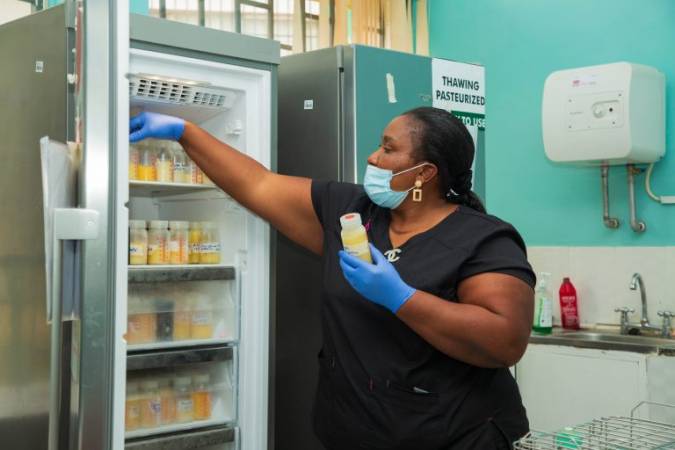Maiden human milk bank to save lives of newborns
By George.Kebaso, January 3, 2022Kenya is now ready to establish a human milk bank for newborns to reduce infant mortality.
The move follows a successful two-year pilot project dubbed “Mother Baby Friendly Initiative” conducted at the Pumwani Maternity Hospital in Nairobi.
Research showed mothers who were willing to donate their breast milk to a Human Milk Bank (HMB) went up considerably from 79.3 per cent in October 2018 to 84.6 per cent the same month in 2019.
On the other hand, a significant improvement in the proportion of newborns who were fed on human milk as the first feed increased from 65 per cent at baseline October 2018 to 81.0 per cent in October 2019.
“We showed a 22 per cent increase in the probability of exclusive use of human milk at endline compared to baseline,” doctors who conducted the survey said.
Survey was conducted by the African Population and Health Research Centre (APHRC) and PATH, an international NGO, which concluded that donating milk to HMB and using Donated Human Milk (DHM) was highly acceptable.
“Results show potential effectiveness of HMB in improving exclusive use of human milk during hospital stay, use of human milk for first feed and reducing the duration of hospital stay among vulnerable neonates,” noted Dr Calistus Wilunda, Associate Research Scientist with APHRC and co-investigator on the HMB project.
Pilot testing
In the pilot testing, 531 and 560 mother-neonate pairs at Postnatal and Newborn Unit (NBU) at pre-intervention and post-intervention were surveyed, respectively.
Survey also included 123 and 116 newborns in NBU at pre-intervention and pre-intervention, respectively. NBU has a bed capacity of 140 neonates 17 bed Kangaroo Mother Care (KMC) unit and three post-natal wards.
Pumwani records an average of 1,600 deliveries monthly, according to Kenya Health Information System (KHIS).
Further results showed that lactating mothers, who would allow their babies to be fed on DHM also increased from 71.2 per cent in October 2018 to 77.3 per-cent same period in 2019.
“Overall, women exhibited good knowledge on breastfeeding,” said Dr Wilunda.
Overall, the results of the MBFI+ pilot demonstrated that implementation of an integrated model is feasible in the Kenyan context and can be successful in achieving exclusive human milk diets, as part of a broader package of care to support neonates and their mothers.
Dr Emily Njuguna, Head of the Pediatrics Department at the facility, noted that the successful experience with the first ever HMB shows potential for scaling of MBFI+ model to promote the well-being of vulnerable neonates.
Key pillars
“We have witnessed a reduction of neonatal mortality from a high of 11.5 per cent to 7.3 per cent,” said Dr Njuguna, noting that this has led the Nairobi Metropolitan Services (NMS) to recognise the Nonates Unit as the most improved in the city.
She attributed five interventions as key in the MBFI Plus programme to capacity building, which saw NMS recruit 1,413 mothers into HMB from 2019 to 2021; the establishment of the HMB, increased partnerships and collaborations leading to introduction of life saving technologies.
Other key pillars of the programme included the establishment of Kangaroo Mother Care, leadership and mentorship as well.
“Since the HMB was established we have witnessed financial benefits amounting to Sh2.16 million since 2017,” she added.
One of the leading causes of deaths of children under five is complications related to births that happen before 37 weeks of pregnancy.
More Articles

